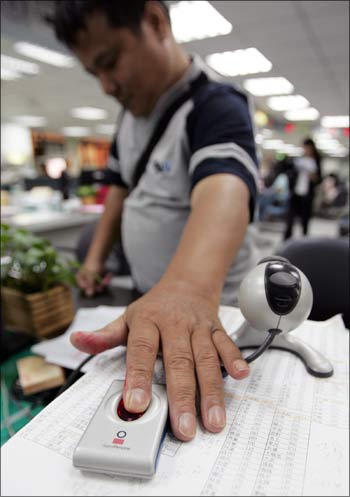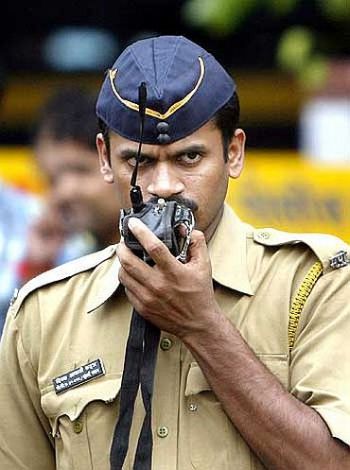 | « Back to article | Print this article |
Wanted: A thorough database on terror
The idea behind setting up a national intelligence grid or natgrid is to merge all the databases of individuals into one place so that it could be accessed by various intelligence agencies.
In India there has never been a thoroughly compiled database of everyone. More often than not, after every terror strike we have found our law enforcement agencies groping in the dark.
While the natgrid, thus, would help a great deal in combating terrorism emerging out of Indian soil, it would be hard to say if it will have the desired effect on terrorists from other countries.
The Intelligence Bureau points out that it is essential that we deal with home-grown terror first, since these are the people who ultimately end up facilitating those who come from outside.
In India there are thousands of terror cells and modules which are active. There is absolutely no database on most of their members, which helps them operate without any difficulty.
Click NEXT to read further...
Capable policing but no data to work with
Security agencies point out that although India does have a capable policing wing across all states, they remain handicapped for want of data. For instance, if a terrorist from Gujarat is nabbed in Rajasthan, then the police teams of both states will need to coordinate.
In the past, we have seen that due to lack of coordination and ego clashes between police departments of different states, information is not shared.
With the natgrid, this issue would be solved and the respective home departments could access the database without having to coordinate with each other.
Terrorism would not be a subject matter of one state alone and the database would be a national property without any jurisdiction, say security experts.
Under this set-up, information about each person would be fed into the database, including credit card details, residential proof, immigration details, bank accounts, fingerprints, property and education details.
The natgrid would not only comprise information about people under the scanner, but would cover every citizen of India.
Click NEXT to read further...
Updation of database is crucial
In addition to this, the Intelligence Bureau too would keep providing its inputs, which again needs to be updated in the database. It will be a continuous effort for the police and all other agencies to ensure that all the date is uptodate.
Once the natgrid is in place the police would have access to a person's info at the click of a button. Prior to this, data-sharing among police and intelligence agencies across states met with a lot of bureaucratic procedures before anything could be shared.
This procedure normally took anything between a week and two, which in turn gave time for the person in question to slip away.
The natgrid would also help the police and the Intelligence Bureau keep tabs on persons with suspicious backgrounds, as even physical movement will be reflected in and tracked thanks to the database.
Click NEXT to read further...



